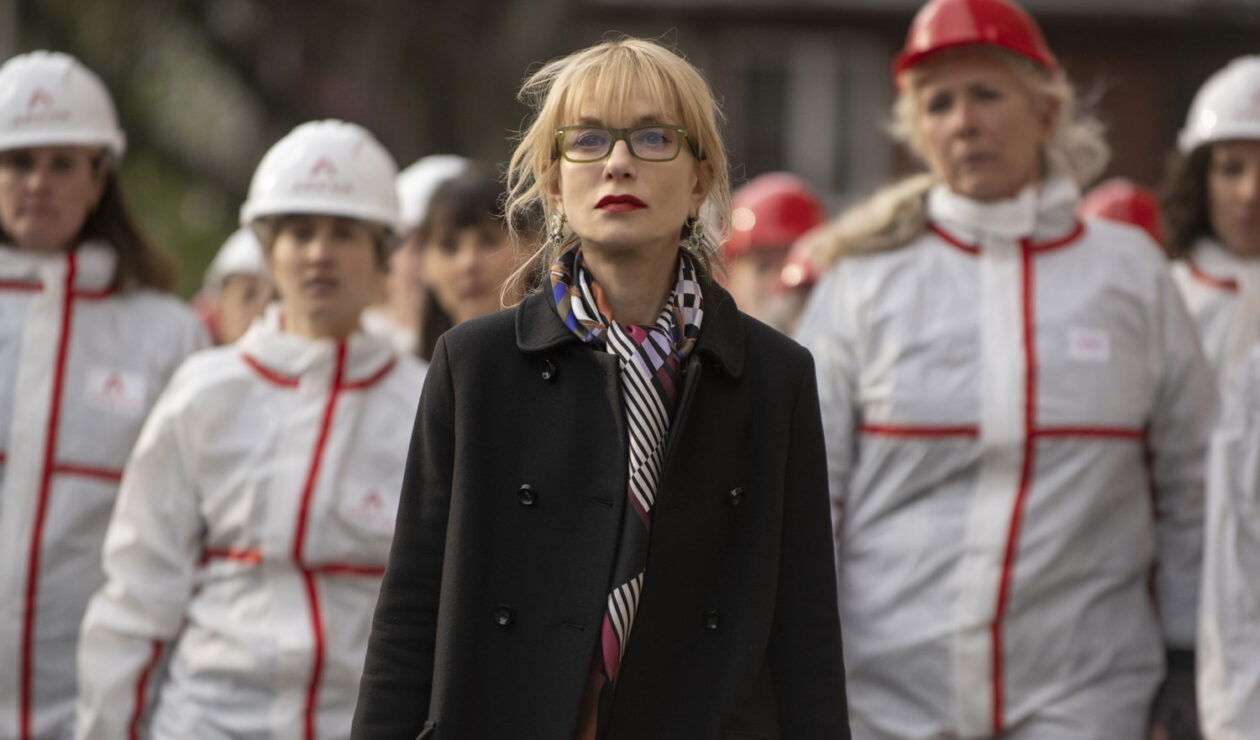A French woman putting on lipstick is attacked in her own home. She is hooded, bound to a chair and sexually violated. The cleaner finds her hours later, still tied up, resigned to her fate. Police arrive, areas are taped off and forensics move in.
The woman, Maureen Kearney (Isabelle Huppert), is a pest of the powerful, a labour federation representative at the French nuclear power company Areva who turns whistleblower when she learns a secret deal is brewing with the Chinese that will export French technology and cost thousands of jobs. In the face of her outspoken campaign for justice for French workers, her enemies line up, including the bosses of the French and Chinese companies and intermediaries who are in on the deal.
The attack is clean and expert; there’s no DNA, nothing is stolen, and it is assumed by her, her husband and initially the police that the intention was to intimidate her and keep her quiet. It was exceptionally vicious because its sexual nature targeted her femaleness, making her vulnerable as a woman.
From here, this true story that opens in 2012 takes unexpected twists as doubts creep in about what really happened. Kearney is not a “typical” victim and her story unravels to the point where her husband Gilles (Grégory Gadebois) starts to question her account and she is charged by police with making a false accusation. Her unconventional responses become her undoing.
There is a Lindy Chamberlain aspect to this societal judgment of a woman who does not conform to gendered expectations. Huppert, always a brittle performer, portrays Kearney as feisty and aggressive in her dangling earrings and pencil skirts. A former French president reportedly called the real Kearney “a hysteric in a skirt”, while the police doctor announced “she doesn’t act like a rape victim” after subjecting her to unnecessary internal examinations.
The rumours and accusations fly. She is a crazy former drunk; a woman in therapy; and worst of all, the victim of an earlier rape to which she had submitted. Why she didn’t fight off her attacker becomes an issue in her trial, as does the manner in which she this time stayed tied to the chair for hours without breaking free. “You read a lot of crime fiction, don’t you?” a policeman asks.

Get InReview in your inbox – free each Saturday. Local arts and culture – covered.
Thanks for signing up to the InReview newsletter.
Kearney was a colourful personality with flaws and fragilities. Based on a book about her and directed by Jean-Paul Salomé, the film is an alarming reminder of how institutionalised misogyny becomes a weapon when the stakes are high. For me, it is badly let down by the flippant Anglicised title; in French, it was simply La Syndicaliste (The Unionist). A true story about a complex public figure who was cruelly targeted over her gender deserves not just better marketing but more respect.
The Sitting Duck is screening now in select cinemas nationally.
Support local arts journalism
Your support will help us continue the important work of InReview in publishing free professional journalism that celebrates, interrogates and amplifies arts and culture in South Australia.
Donate Here




